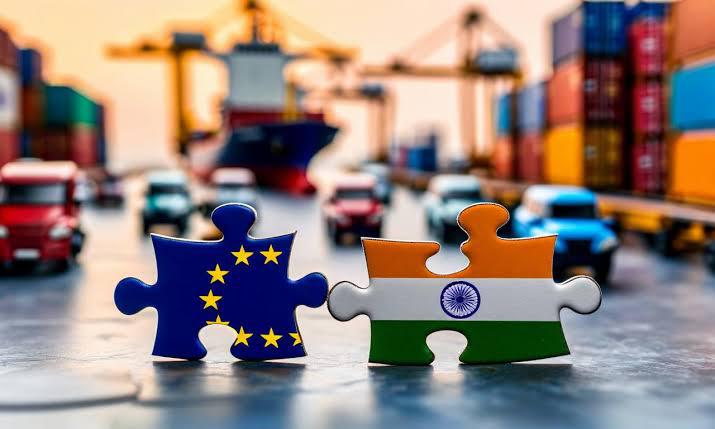The recent escalation of Western pressure on India regarding its energy trade with Russia represents a fundamental misunderstanding of contemporary geopolitical realities and economic interdependencies. NATO Secretary-General Mark Rutte’s warning that “if you continue to trade with Russia and buy their oil and gas, then you know: if the man in Moscow doesn’t take the peace negotiations seriously, I will impose 100 per cent secondary sanctions” directed at India, China, and Brazil, reveals a strategic myopia that threatens to undermine the very objectives it seeks to achieve. For the European Union in particular, pursuing sanctions against India over Russian energy purchases would be profoundly counterproductive, given Europe’s increasing reliance on India for supply chain diversification, technological cooperation, and economic resilience in an uncertain global environment.

India’s energy security considerations regarding Russian oil purchases reflect legitimate national priorities that cannot be dismissed through sanctions threats. By 2024, Russia’s share of India’s oil imports had spiked to 37.6%, making Russia India’s largest crude oil supplier. This shift occurred as a pragmatic response to market conditions created by Western sanctions themselves. Currently, Russia accounts for around 35-40% of India’s oil imports, making it the largest supplier of crude oil to India, a position that reflects India’s pursuit of affordable energy to support its development objectives and energy security needs.
India’s response to NATO pressure has been measured and firm, emphasizing that India has never purchased any sanctioned cargo and that Russian oil was not under global sanctions but only a price cap, carefully structured to reflect ground realities of the international energy supply chain. This position highlights the legal and practical complexities surrounding energy trade that NATO’s blanket sanctions approach fails to acknowledge. India’s energy imports from Russia operate within the framework of international law and existing sanctions regimes, making secondary sanctions threats appear both legally questionable and politically motivated.
The economic relationship between the EU and India provides compelling evidence for why sanctions against India would be self-defeating for European interests. The EU is India’s second-largest trading partner, accounting for trade in goods worth €120 billion in 2024, or 11.5% of India’s total trade, while trade in services was €59.7 billion in 2023.
The timing of NATO’s sanctions threats is particularly problematic given the EU’s active efforts to deepen economic integration with India through various institutional mechanisms. The European Union and India held their second ministerial meeting of the Trade and Technology Council (TTC) on 28 February 2025, in New Delhi, as part of efforts to strengthen technological and trade cooperation. Both sides have expressed a commitment to conclude the trade agreement by the end of 2025, reflecting mutual recognition of the strategic importance of the EU-India economic partnership. Pursuing sanctions against India while simultaneously negotiating deeper trade integration represents a contradictory approach that undermines European credibility and strategic coherence.
The technological dimensions of EU-India cooperation further illustrate why sanctions would be counterproductive. The Trade and Technology Council framework recognizes India’s importance as a partner in developing secure, transparent, and reliable technology networks that can serve as alternatives to systems dominated by countries that may not share European values or interests. India’s technological capabilities, particularly in information technology, pharmaceuticals, and renewable energy, provide European companies with alternatives to Chinese suppliers and help reduce technological dependencies that have become security concerns for European policymakers.
India’s role in global pharmaceutical supply chains exemplifies why European sanctions would be particularly self-defeating. India is often referred to as the “pharmacy of the world” due to its dominant position in generic drug manufacturing and pharmaceutical ingredients. European healthcare systems rely significantly on Indian pharmaceutical products, and any disruption to this supply chain through sanctions could have immediate public health implications. The COVID-19 pandemic demonstrated the critical importance of maintaining diverse and resilient pharmaceutical supply chains, making sanctions against a key supplier a particularly counterproductive policy choice.
The broader geopolitical context also argues against sanctions as a tool for influencing Indian energy policy. India’s strategic autonomy doctrine, rooted in its non-aligned tradition, means that external pressure often produces the opposite of the intended effect by reinforcing India’s determination to maintain independent decision-making on matters of national interest. Sanctions threats are likely to strengthen rather than weaken India’s resolve to maintain diverse energy partnerships, potentially pushing India toward closer cooperation with Russia and other non-Western partners rather than encouraging alignment with Western positions.
The economic costs of secondary sanctions would likely be significant for both sides, but particularly damaging for European interests given the current global economic environment. Secondary sanctions could result in punitive tariffs on Indian goods, shipping sanctions, and restrictions on loans and insurance, which would hit the Indian economy hard. Still, such measures would also disrupt European supply chains, increase costs for European consumers, and reduce competitiveness for European businesses that rely on Indian suppliers, partners, or markets.
Alternative approaches to influencing India’s energy choices would be more effective and less damaging to broader strategic interests. Rather than threats and sanctions, the EU could focus on providing India with alternative energy supplies, investment in renewable energy infrastructure, and technology transfer that reduces India’s dependence on any single energy supplier. Such positive inducements would be more likely to achieve desired outcomes while strengthening rather than undermining the EU-India strategic partnership.
The precedent that sanctions against India would set is also problematic for broader international relations. If major economies begin imposing secondary sanctions on each other over indirect trade relationships, the result would be further fragmentation of the global economy and increased instability in international markets. For the EU, which benefits significantly from open international trade and has consistently advocated for multilateral approaches to global challenges, adopting unilateral sanctions risks undermining the very international system that serves European interests.
The energy transition context provides additional reasons why sanctions would be counterproductive. India’s renewable energy expansion, which has made it one of the world’s fastest-growing clean energy markets, benefits from international cooperation and investment. Sanctions that disrupt India’s economic growth or technological cooperation could slow rather than accelerate India’s energy transition, ultimately working against climate objectives that European policymakers claim to prioritize.
Regional security considerations also argue against sanctions approaches that could push India toward closer alignment with China and Russia. India’s role in balancing Chinese influence in the Indo-Pacific region serves European interests in maintaining a multipolar rather than a Chinese-dominated regional order. Sanctions that weaken India or push it away from cooperation with Western partners could inadvertently strengthen Chinese regional influence, an outcome that would contradict European strategic objectives.
The path forward requires recognizing that India’s energy choices reflect legitimate national interests that cannot be altered through coercion, but can be influenced through positive engagement and partnership. The EU’s focus should be on deepening economic and technological cooperation with India, supporting India’s energy transition through investment and technology transfer, and building resilient supply chain partnerships that serve mutual interests. Such approaches would be more likely to achieve desired outcomes while strengthening rather than undermining the strategic partnership that both sides need in an increasingly complex global environment.





